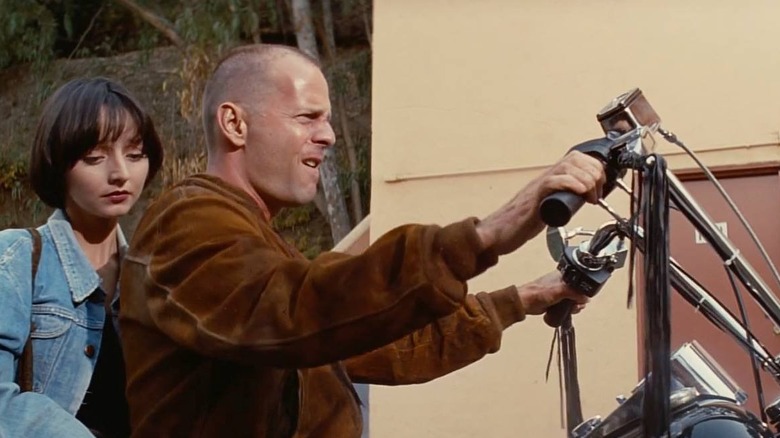It Turns Out Bruce Willis Didn't Exactly Sell The Rights To His Image To A Deepfake Company
Actor Bruce Willis has not sold the rights to his likeness to deepfake company Deepcake, according to Willis' spokesperson. This is in contrast to previous reports that Willis was the first major Hollywood star to sell the rights to create a "digital twin" of him that could star in anything from commercials to movies.
Speaking to the BBC, Willis' spokesperson clarified that the "Pulp Fiction" star had "no partnership or agreement" with Deepcake. Officials from the deepfake company stated that they received Willis' consent and cooperation to create his digital twin, but nothing else.
Willis, who recently was forced to retire from acting due to a diagnosis with aphasia, had his likeness used in a commercial for Russian telecoms company Megafon last year. Presumably, Willis agreed to allow Deepcake to use his likeness for that advertisement, but he did not grant them the rights to use his appearance going forward.
Unprecedented technology
Incidents like this underscore just how uncertain the specifics of deepfakes can be, even in professional settings. The lack of clarity regarding whether Willis had sold the rights to his likeness or simply given temporary permission to use it is understandable, as the field is still relatively new. The legal implications of selling the rights to one's likeness like this are completely unknown (although they were explored in the 2013 film "The Congress," starring Robin Wright).
Deepcake, the company that worked to replicate Willis' likeness, was only founded in 2020. They feature Willis heavily on their website as somebody they've worked with, and they claim that their "service is most effective when it comes to A-list celebrities," so even if they didn't retain the full rights to Willis' image, they're clearly seeking to work with more huge celebrities in the future.
It's clear why possessing the rights to the image of Bruce Willis or any other star would be a huge boon to a company like Deepcake. Being able to insert a star of Willis' caliber into a piece of media can be the difference between a movie being made or not, and companies will be able to feature celebrities in their advertisements without the actual celebrity having to leave their house. But as we move forward into an uncertain future with deepfakes, one that will continue to be riddled with dangerous and irresponsible usages splashed all over the internet, it will be interesting to see if there will be any enforceable regulations applied to this technology or if it will be up to each viewer to discern whether what they're seeing is the real deal or a digital imposter.

